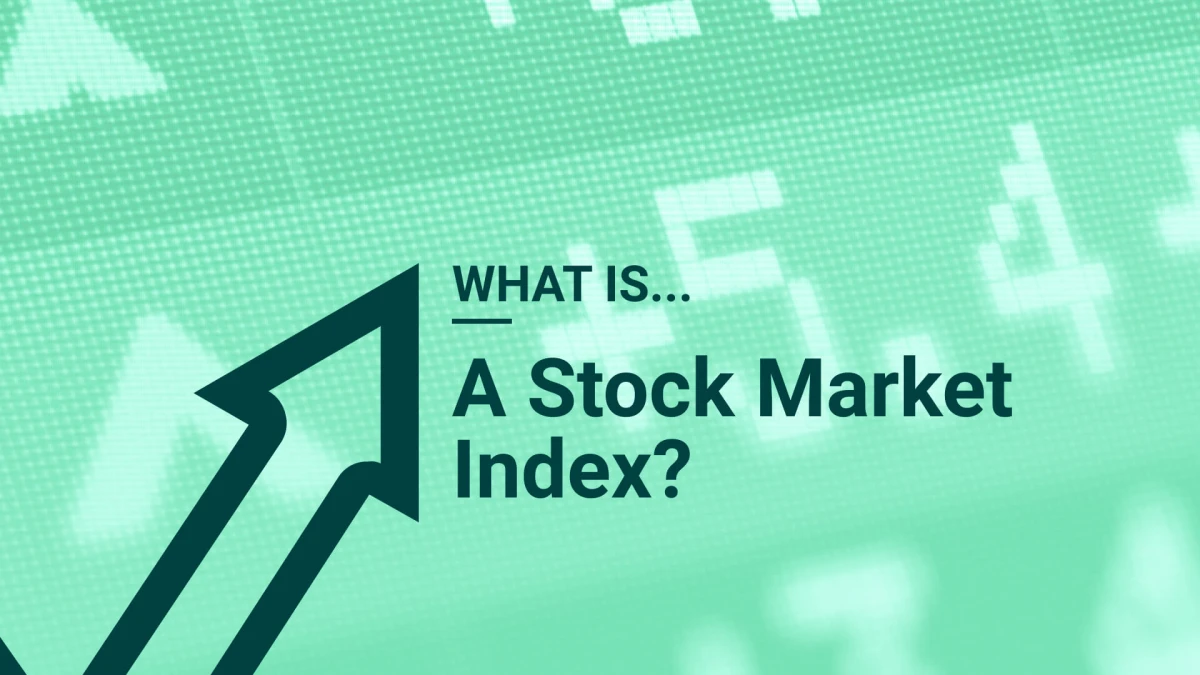A stock market index is a hypothetical portfolio of investment holdings that represent a segment of the financial market. The index value is determined by the prices of the underlying holdings and can be based on market cap weighting, revenue weighting, float weighting, or fundamental weighting.
A stock market index gathers data from a range of companies across industries to help investors gain a clearer picture of market performance. Some stock market indexes focus entirely on one industry, for example, the NASDAQ index tracks the technology sector and includes companies such as Apple and Amazon.
#How a stock market index works
Investors tend to follow different market indexes to measure market movements, they cannot invest directly into an index, but they do serve as benchmarks for developing index funds.
Some indexes focus on a small section of the market whereas others concentrate on larger subsets and can include thousands of companies. Each index serves its own unique purpose as investors are interested in different sectors and may track stock market indexes when looking to diversify their portfolios.
The Dow Jones Industrial Average (DJIA), S&P 500 Index and NASDAQ are among the most popular stock market indexes for tracking performance in the US market.
#Types of stock market indexes
There are a wide range of stock market indexes, some of the main ones include:
S&P 500 Index
One of the most highly regarded stock indexes, the S&P 500 Index is weighted by market cap. It serves as a measure of the overall stock market’s performance and an indicator of how large corporations are performing. It contains 500 of the largest companies in the US, such as Microsoft, Facebook, and JP Morgan Chase.
Dow Jones Industrial Average (DJIA)
A widely followed index containing 30 large industrial stocks, the DIJA is price weighted. This index covers business sectors such as autos and manufacturers of steel and includes companies such as 3M, Boeing, and Cisco Systems.
NASDAQ Composite
This index is also referred to plainly as the NASDAQ, though that can be confusing as the NASDAQ is technically the name of an exchange rather than an index. The NASDAQ Composite is predominately focused on the technology sector and contains the more than 3000 companies listed on the NASDAQ exchange. Companies included in the NASDAQ index include Netflix, Tesla, and Intel.
The Wilshire 5000
Sometimes referred to as the total stock market index or total market index, The Wilshire 5000 includes all of the publicly traded companies with headquarters in the US that have widely available price data. It is regarded as the best measure of the overall US equity market. It maintains three versions of the index, one market cap weighted, one float adjusted and one equal weighted. Companies listed include Alphabet, Nvidia, and Visa.
S&P 100 Index
As a subset of the more commonly known S&P 500 Index, this index tracks 101 leading US stocks with exchange-listed options. The stocks included tend to be the largest and most established companies in the S&P 500, including Bank of America, Apple, and Caterpillar.
NASDAQ 100
The NASDAQ 100 is a subset of the largest 100 companies within the main NASDAQ index, this equates to roughly the top 3% of stocks listed on the exchange. This index mainly focuses on the technology sector and specifically excludes financial companies. Companies in the NASDAQ 100 include Adobe, eBay Inc, and VeriSign.
#Advantages of stock market indexes
The advantages of using stock market indexes include:
Track overall market health
Following the stock market indexes that are relevant to an investor’s portfolio can help gauge the current state of the market and inform investment decisions and help investors reach their goals more consistently.
Index funds are low cost
Index funds are a low-cost way to invest as they are passively managed rather than actively managed which results in low fees, making them attractive to investors.
#Disadvantages of stock market indexes
The disadvantages of using stock market indexes include:
Calculation issues
Price weighted indexes such as DIJA take the sum of the prices of all 30 stocks in the index, then divide it by a divisor which is adjusted based on stock splits, spinoffs or other market changes. Those with higher prices have a larger impact on movements and no consideration is given to the relative size of the industry the stock is in or the market cap.
